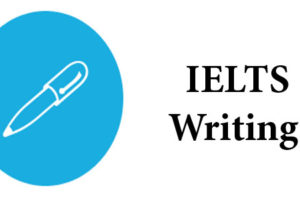تمرین درک مطلب انگلیسی درباره موضوع رایج Renewable Energies

تنها راه تقویت مهارت ریدینگ، خواندن زیاد است. برای اینکه سریعتر پیشرفت کنید، بهتر است مطالب را از منابع مختلف و درباره موضوعات مختلف انتخاب کنید. به ویژه اگر قصد شرکت در آزمون های بین المللی زبان انگلیسی، مانند آیلتس و تافل، را دارید، خوب است مطالبی درباره ی موضوعات رایج در این آزمون ها بخوانید. تمرین درک مطلب انگلیسی نه تنها باعث تقویت مهارت ریدینگ شما می شود، بلکه در کنار آن لغات جدید و ساختارهای گرامری پیچیده تر را نیز به طور ناخودآگاه خواهید آموخت.
در این مطلب، به سراغ موضوع renewable energies یا همان انرژی های تجدیدپذیر می رویم. ابتدا مقاله ای کوتاه درباره آن خواهیم خواند، سپس به چند سؤال درک مطلب آن پاسخ می دهیم، در انتها نیز فهرستی از لغات مناسب متن را در اختیارتان می گذاریم.
تمرین درک مطلب انگلیسی، موضوع Renewable Energies
سطح تمرین زیر upperintermediate تا advanced است.
The Ascendance of Renewable Energies: A Sustainable Future
In recent years, the conversation surrounding energy generation has increasingly pivoted towards renewable energies, those derived from natural processes that are replenished at a rate faster than they are consumed. As global concerns about climate change, energy security, and the depletion of fossil fuels intensify, the shift towards sustainable energy alternatives is both timely and imperative.
Renewable energy sources encompass a diverse array of technologies, including solar, wind, hydroelectric, geothermal, and biomass. Each of these modalities harnesses natural phenomena to generate electricity or heat, contributing to a more sustainable energy ecosystem. Solar energy, for instance, captures sunlight through photovoltaic cells, converting it into electricity. This technology has seen exponential growth in adoption, fueled by decreasing costs and innovative advancements. Wind energy, similarly, utilizes large turbine systems to convert wind’s kinetic energy into power. The proliferation of wind farms across various terrains has established wind energy as a stalwart contender in the renewable sector.
Hydroelectric power takes a different approach, leveraging the gravitational force of flowing water to produce energy. Dams and water turbines enable the conversion of potential energy into kinetic energy, often resulting in a highly dependable energy source. However, hydroelectricity does come with ecological considerations. The alteration of waterways can impact local ecosystems, necessitating careful planning and management to minimize adverse effects.
Geothermal energy, which taps into the Earth’s internal heat, presents another innovative avenue for energy generation. By drilling into the Earth’s crust, this technology harnesses steam or hot water reservoirs to produce electricity or provide direct heating solutions. While geographical limitations often confine its prevalence, geothermal energy represents a consistent and reliable energy source for many regions globally.
Biomass energy, derived from organic materials, rounds out the suite of renewable options. This energy source transforms agricultural waste, wood, or other organic matter into usable energy through combustion or biochemical processes. Although biomass is often touted for its ability to utilize waste materials, its sustainability hinges on responsible sourcing practices and land management.
While the potential of renewable energies is undeniable, challenges persist in their widespread adoption. Intermittency issues, particularly with solar and wind energy, necessitate enhanced energy storage solutions. Furthermore, the initial capital investment for renewable infrastructure can be substantial, posing barriers in low-income regions. Yet, as technological advancements continue to mitigate these challenges, the momentum towards a renewable energy future becomes increasingly achievable.
The transition to renewable sources is not merely an environmental imperative but also an economic opportunity. Investment in renewable infrastructure can generate jobs, stimulate local economies, and reduce energy costs in the long run. As governments worldwide implement policies to incentivize clean energy solutions, the stage is set for a profound transformation in how energy is generated and consumed.
In summary, renewable energies hold the key to addressing some of the most pressing challenges faced by modern society. By embracing innovative technologies and sustainable practices, humanity can pave the way for a cleaner, more resilient energy future.
Comprehension Questions: Choose the best option.
Which of the following is not mentioned as a type of renewable energy source in the article?
a) Solar
b) Wind
c) Natural gas
d) Biomass- What technology does solar energy utilize to convert sunlight into electricity?
a) Hydroelectric turbines
b) Geothermal pumps
c) Photovoltaic cells
d) Biomass converters - What is a significant ecological consideration mentioned regarding hydroelectric power?
a) Cost efficiency
b) Structural complexity
c) Impact on local ecosystems
d) Employment generation - How does geothermal energy generate power?
a) By combusting organic materials
b) By capturing wind currents
c) By tapping into the Earth’s internal heat
d) By converting sunlight into biomass - What is one of the challenges faced by renewable energies?
a) Growth of fossil fuels
b) Intermittency issues
c) Excessive waste production
d) High levels of pollution - What potential benefit does investment in renewable infrastructure provide?
a) It reduces the amount of waste generated.
b) It eliminates the need for energy storage.
c) It can generate jobs and stimulate local economies.
d) It increases reliance on non-renewable sources. What does the article suggest about the future of renewable energies?
a) They will likely decrease in importance.
b) They will face more regulations and barriers.
c) They may lead to a cleaner, more resilient energy future.
d) They will primarily benefit wealthy nations only.
Answer Key
- c) Natural gas
- c) Photovoltaic cells
- c) Impact on local ecosystems
- c) By tapping into the Earth’s internal heat
- b) Intermittency issues
- c) It can generate jobs and stimulate local economies.
- c) They may lead to a cleaner, more resilient energy future.
فهرست لغات مفید و کاربردی متن
- Renewable energies
- Sustainable
- Photovoltaic cells
- Kinetic energy
- Hydroelectric power
- Ecosystem
- Potential energy
- Geothermal
- Biomass energy
- Intermittency
- Infrastructure
- Investment
- Incentivize
- Transformation
شما از چه منابعی برای تمرین درک مطلب انگلیسی استفاده می کنید؟ در بخش نظرات با ما به اشتراک بگذارید.
مطالب زیر نیز مفیدند:


